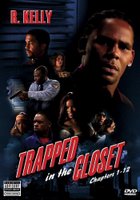
I had it in mind to write a more literary story about this topic, and I might still, but for now I’ll keep to my semi-coherent rambling.
A few days ago I watched my white 1990 Jeep Cherokee get hauled off to be stripped and demolished. It overheated twice in the last few months, the most recent of which was indicative of an engine problem which was simply too expensive to fix on a 15 year old car. The Jeep went the way of many good, trusty cars (the same way, I suppose, of people); that is, all of a sudden, everything just started breaking. What was surprising was not that the car was falling apart, by all accounts it was a miracle it lasted as long as it did considering the kind of aggressively negligent relationship I had with it. The shock, rather, was how deeply emotional it was to say goodbye to it. Before they took it away, I rummaged through the conspicuously odorous heaps that stuffed, wormed, festooned, and perhaps populated the interior of the car. I realized that with every stray scrap, every cassette tape, every pair of 3 dollar sunglasses, even all the nickels and dimes, I was accessing a wide stream of memories, some significant, others delicately ordinarily. All this stuff, the lost and found of the last 4 years, got me thinking about how the car, raised to symbolic stature, commands a cultural identity so private, so personal, yet so endemic to American-ness, to masculinity, to the mode our cultural interaction, to our social psychology, our identity, and more relevantly to this post (which will now get to the point), to music.
As a performance space, cars are so beautifully well-suited to listening to music. Acoustically, they provide a happy medium between headphones and your living room or bedroom, or studio. Assuming your car produces about half the diversity of ambient sounds that mine did before it died, the car stereo provides a highly intimate field of aural perception. Of course, when you ride in cars that clank, shudder, squeak, whimper, buzz, and growl, as mine did, or even if you like driving with the windows down (a cliché, but still a wonderful cultural metaphor), you would know that more than any other musical venue, including clubs of any kind, the car encourages us to insert ambient sounds into the fabric of the music itself. Even in the theater, opera, or ballet, where the aural integrates with the visual, ambient sounds are to be correctly excluded from the art. There is so much music that sounds right at home with the whirring of a freeway, or the impatient buzz in a traffic jam. Moreover, when we watch the scenery of a road slip past, when we design abstract patterns in the tapestry of traffic, or invent histories of abandoned buildings, and anonymous people in familiar towns, or when we wait patiently for the right time to lean in for a kiss; the accompaniment of the right music (no matter what kind it is) is what makes that moment resonate, it's what makes life filmic, breathes emotion into deadened objects, and penetrates a vast pool of memory, hope, love, despair, regret, giddiness, nostalgia, or any depth of feeling so profound that it enters a separate plane of consciousness.
I think, although there are so many other reasons, that cars are able to make these experiences possible because despite having an obvious socially functional role (transportation), the physical experience of car travel is quite removed from the urban, suburban, rural, natural context. The car can be an imaginary space. It holds an a-historical air, like the concert hall, the movie theater, the gallery, the refrigerator. It is merely a moving container. But the fact that it moves, more importantly that it moves us, gives it the kind of openness to suggestion, the highly charged but ambiguous aura that primes a person for musicality. This, together with the fact that it forces us to sit in a way in which is fundamentally antisocial (illuminating, rich, and revelatory car conversations notwithstanding) creates a space rife with possibility, and yet comfortable enough not to force the point (as concert spaces often do to the uninitiated). In fact, what makes great conversations in the car so great may just be the fact that you don’t have to address another person head on, and if you’re driving it’s downright dangerous trying to look someone in the eye. It is precisely that midpoint between a performance-like space, and a space that is normalized as an everyday, functional exercise that gives a car the atmosphere that seems to say; “the pressure is off, we’re safe, let’s talk, let’s think, let’s listen.” To be true, cars and driving in general can also invoke the kind of deathly boredom, impatience, annoyance, and even anger that analogizes well into the kind of station-surfing ADD overload, that makes you feel like all music is terrifyingly homogenous, completely useless, and pathetically artificial. This is the point at which, we should turn off the music, pull over the car at the nearest gas station, buy a coke and eat a hamburger (unless you’re not American, don’t own a car, don’t drink caffeine, or don’t eat meat, or don’t like listening to music in cars at all, in which case, go driving with someone whose music taste you admire).
‘till next Sunday,
pb










